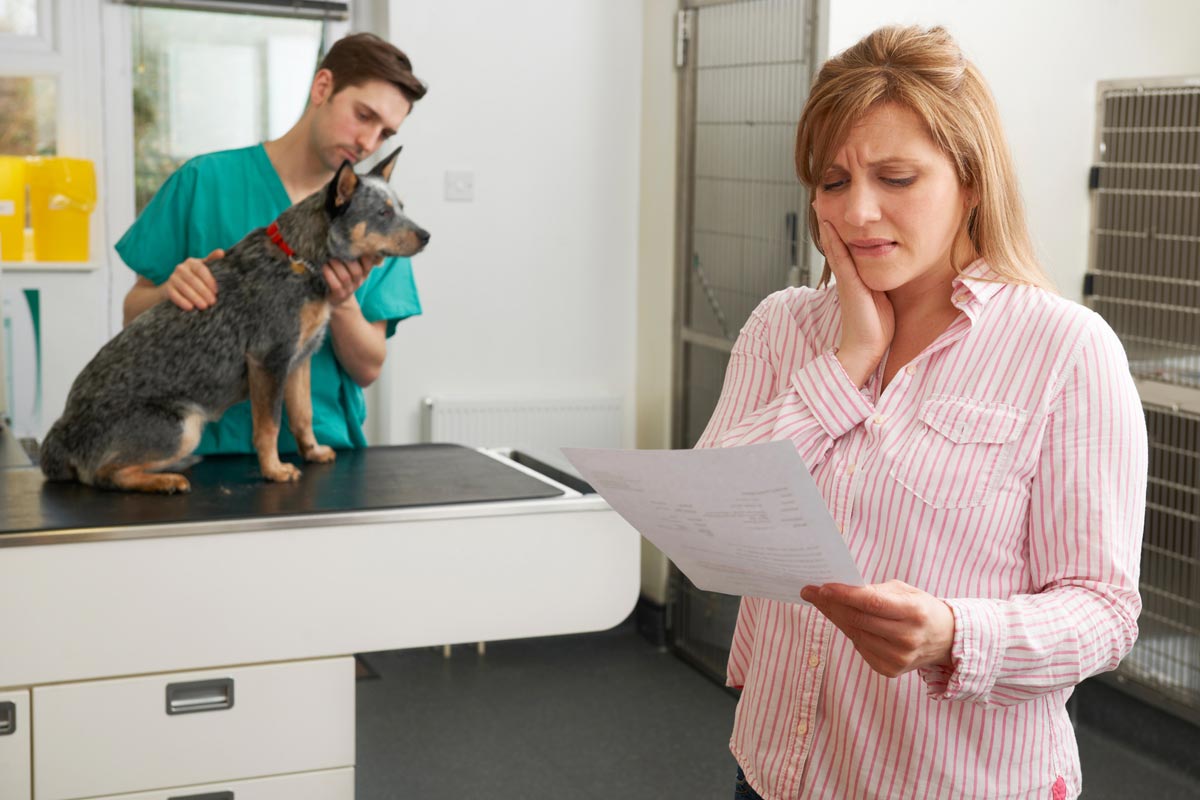In our current era, it seems as if perfectionism is considered a great virtue. I see and hear a lot of people describing themselves as “a bit of perfectionist” (which always strikes me as an oxymoron) as if this is a good thing, a great virtue to be lauded.
I freely admit here that I am not a perfectionist (and I’m sure my editor, who has to correct this copy, wholeheartedly agrees with me). I don’t think that’s necessarily a bad thing either.
Don’t get me wrong; perfectionism has given us great things – Blade Runner wouldn’t have been the film it was without Ridley Scott’s fanatical devotion to getting every frame exactly right… but… I don’t think many people enjoyed actually making the film.
Extraordinary measures
Here’s my problem with perfectionism – it isn’t always required. In veterinary medicine, I’m not sure it’s even often required.
Common conditions occur commonly, and the ability to rapidly recognise and treat a common condition is a big part of being a pragmatic general practitioner. Yes, there’s no way Dr House is going to miss Lyme disease, but, in general practice, you’ll probably never see a case in an entire working career, so testing for it “to be on the safe side”… well, it has it’s downsides.
I understand the desire to be right, to serve your patients correctly and not to let anything slip through the net, but here’s the thing: perfectionism takes time, and it costs money.
The final 20%
 As a general rule, you can get 80% of the way to solving a medical case in the first 20% of the time you could spend on the patient. The final 20% of that case, if it can be solved at all, is going to take up increasing amounts of time.
As a general rule, you can get 80% of the way to solving a medical case in the first 20% of the time you could spend on the patient. The final 20% of that case, if it can be solved at all, is going to take up increasing amounts of time.
If you’re a true perfectionist, you’ll get there, explain every last aberration in the blood values, understand exactly how the condition occurred in the first place, check for every other possibility, but the vast majority of cases don’t need that – you don’t need to know for sure exactly how a cat bite abscess occurred in the majority of cases, or why the chloride is a little low, or why the patient is still a tiny bit anaemic five days later.
In rare cases, you’ll need to know that. Most of the time, you won’t, and all that extra time you’re spending on your patients – some would argue unnecessarily – has to come from somewhere.
Selfish pride
There is, it seems to me, although it comes from a place of caring and pride, a degree of selfishness to perfectionism.
You see, if you’re spending 40 or 50 minutes on every patient, then your clients are likely to be quite happy with you – until they get the bill, at least (see later) – and you’re likely to feel as if you’ve done a good job, and covered yourself by covering every base, but the 12 other clients who are waiting hours for their appointments are going to be less so. These are people who have taken time out of their busy days to fit in a visit to the vets, and they’re likely to be stressed and unhappy already. Leaving them a very long time before they get seen is going to increase their stress and worry.
Additionally, because you’re spending so long with each patient, the other vets who are consulting with you are going to have to work even faster to try to keep up with the workload – they’ll be getting a face full of angry client every time they walk out into the waiting room, and they won’t have the luxury of ticking every box; they’ll have to make quick decisions and assumptions so there’s not a revolt in the waiting room.
All in good time
It may not be true in all cases, but many perfectionists I have worked with seem either oblivious or unconcerned about what is happening in the rest of the practice – it doesn’t matter that there’s 15 ops waiting to be done, because they have their own case to deal with, and to get right. The ops all get done eventually, don’t they? Well, yes, they do, by stressed and hurried vets who don’t have time to do the probably unnecessary research you may be doing.
It’s true that some cases need much more attention and time spent over them, and it’s true that part of becoming an experienced vet is recognising when you have such a case – “knowing when to slow down”, as it’s called, which is why it’s hard to work quickly as a new vet – but there’s a difference between inexperience and chronic perfectionism, as I suspect many of you reading this will recognise.
The other downside to checking every possibility, rechecking every spurious test and being certain you’ve ruled out the obscure conditions, is it’s going to rack up a much bigger bill.

Through the nose
There’s lots of ways to spend a lot of money in veterinary medicine nowadays, but that doesn’t mean it is right to do so. Continually building up large bills “to be safe” is very hard for non-insured owners, who would generally prefer a more pragmatic approach.
Even for insured owners, unnecessary or, at least, less necessary testing pushes up bills towards their limit, and the general trend is causing insurance premiums to rise ever higher.
As well as that, as we all know, testing for rare conditions when you don’t have a strong clinical suspicion means a positive result is more than usually likely to be a false positive, and can lead to incorrect interventions or, at least, confusion.
Sense of urgency
I’m not against perfectionism – it definitely has its place, but that place isn’t generally, in my opinion, in the consulting rooms of general practice; at least, not for most cases. I’m a pragmatist, and I’m happy to be one. I think you have to strike a realistic balance between what medicine is technically capable of with what is affordable and realistically doable in every case.
In all honesty, I’m not sure I could ever be a perfectionist; I like the buzz of rapid decision-making, of helping people quickly, of moving from one case to the next. I lack the patience (if not the patients) perfectionism requires, and I respect people that do.
However, in the middle of a long evening surgery, when I’m calling in my fifth grumpy client in a row because I have a colleague who has spent over an hour with their 15-minute appointment for an ear infection, I look at the full waiting room and wish I could inject my perfectionist colleagues with a little of the sense of urgency that pervades the rest of the practice.

Leave a Reply